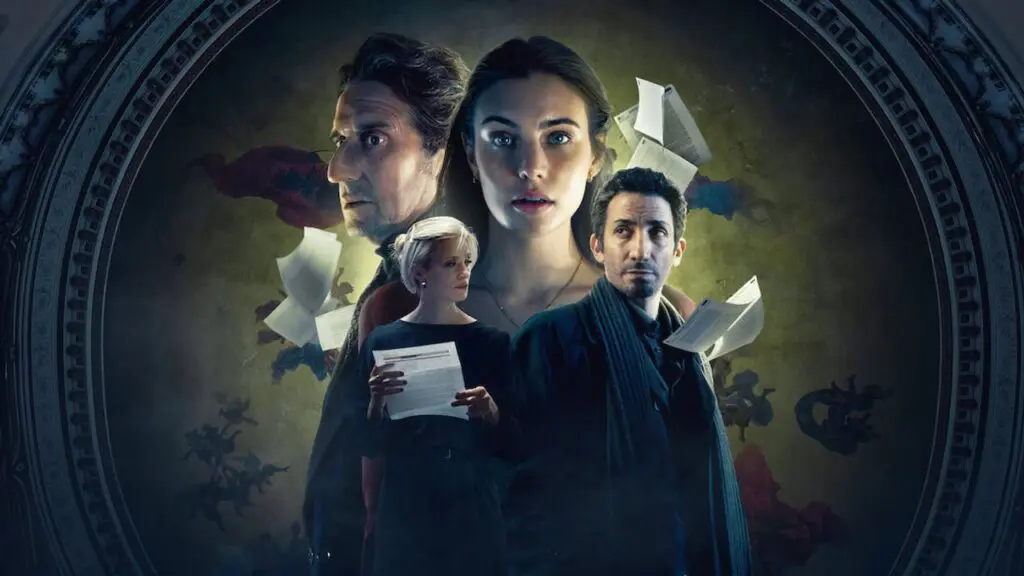Summary
The Wrath of God is a self-absorbed, pretentious thriller that is not smart enough to thrill and not cheesy enough to be a guilty pleasure.
There are very few things I can’t stand more than a pretentious thriller. The Wrath of God (originally titled in its native language, La Ira de Dios) is an Argentinian thriller that is more an elevated lifetime movie genre than anything substantial.
The film has an over-inflated ego of self-importance with an alarming lack of subtext. You’ll often see films with a protagonist or villain changing the world with the book they wrote. Here, a legendary novelist named Kolster has a new book that is so highly anticipated that a fervent press follows him.
Everyone, it seems, is anticipating the novel’s debut. He is such a gasbag. We watch him speak about his new book being perfect, all while in a standing-room-only auditorium. Trust me, this is only if someone discovers a lost Harry Potter novel (and it would have to be before June 2020).
The story follows Luciana (Macarena Achaga), a beautiful student working as an assistant for Kloster (Diego Peretti, The Kingdom). Kloster has a wife and a young daughter. Luciana also looks after her. His wife has depression and feels threatened by Luciana. And she has good reason to be worried. When Kolster’s beautiful assistant shows him a scar on her arm, he kisses Luciana. She pulls away, quits, and sues him for sexual harassment.
Over the years, members of Luciana’s family began to have terrible accidents or die horrible deaths. She thinks Kloster is behind it, but she cannot prove it. Luciana contacts her former boss and Kloster critic, a writer named Esteban (The Two Popes‘ Juan Minujin). It just so happens Luciana also quit that job because of his luring looks. She wants him to research and write a story about Kloster. How will this help? She thinks it can expose him as a murderer and leave her family alone. Who better than Kloster’s rival?
Director Sebastián Schindel (The Son; The Crimes that Bind) and long-time screenwriting partner Pablo Del Teso attempt to adapt Guillermo Martinez’s novel that talks more about obsession than displaying any of it.
When Luciana sues him and wins, Kloster appears everywhere she goes. He appears standing over dead bodies like an ominous gargoyle (cue Jack Nicholson asking, “Is there another kind?”). The massive plot holes then pile up and rely on underwritten supporting characters’ incompetence.
For instance, when one of her siblings passes away over a crime of passion, Luciana points out she would have known if he was having an affair. The cops assume it must be true, even though the note left is not signed. They even failed to see if the girlfriend was having an affair with him. This could easily verify the motive for the crime.
This is where the obvious flaw in The Wrath of God becomes evident. As the motivation is apparent halfway through the film, and as each death occurs, scenes play out quickly without real context. This effectively takes away any suspense the film could have built.
It’s an exercise in gratuitous macabre and egomaniacal storytelling where only writers are smart enough to either pull off the crime or solve it. When you combine this with a stomach-turning, twisted finale, The Wrath of God is a thriller not smart enough to thrill and not cheesy enough to be a guilty pleasure.
Read More: The Wrath of God Ending Explained




